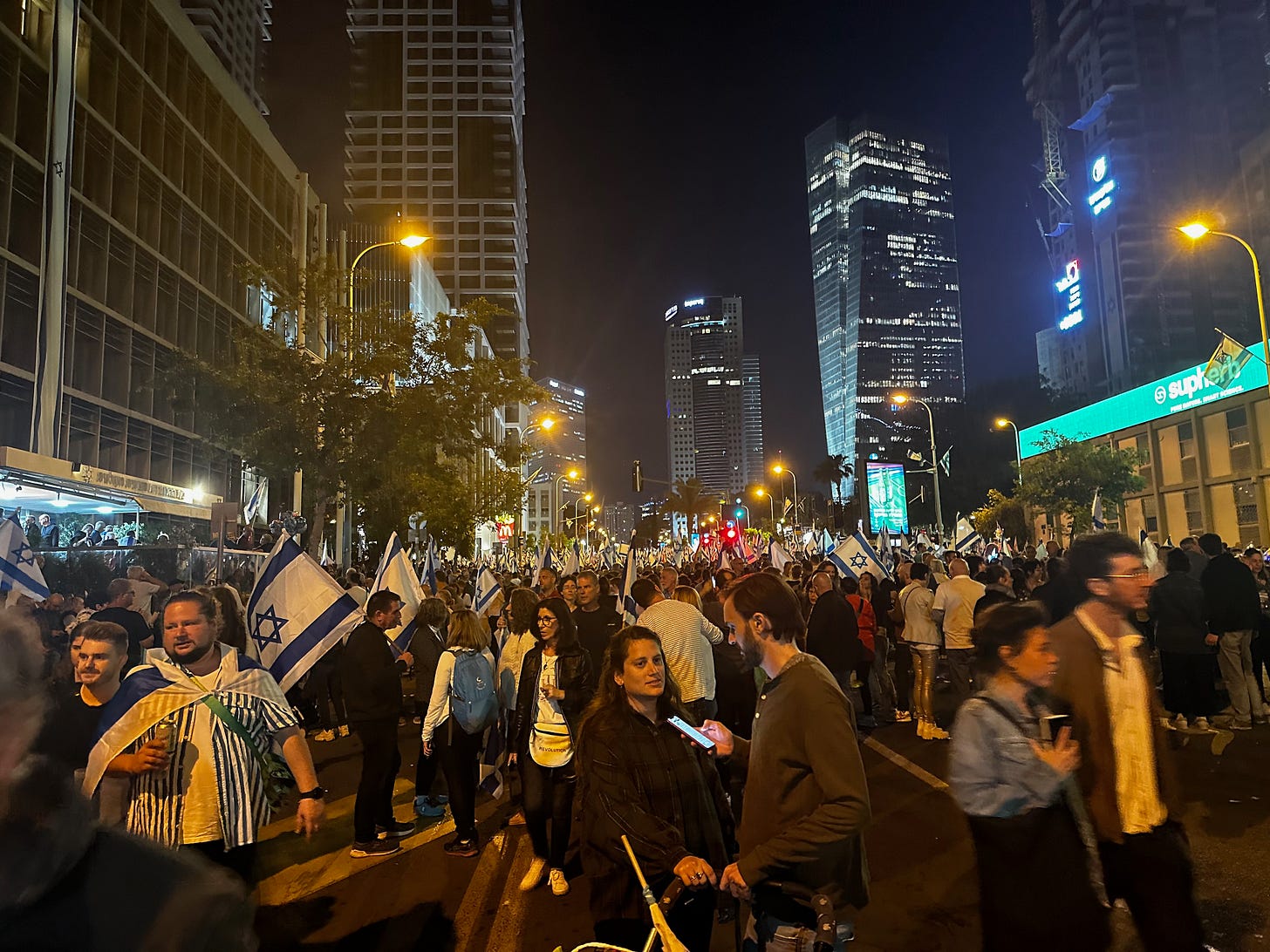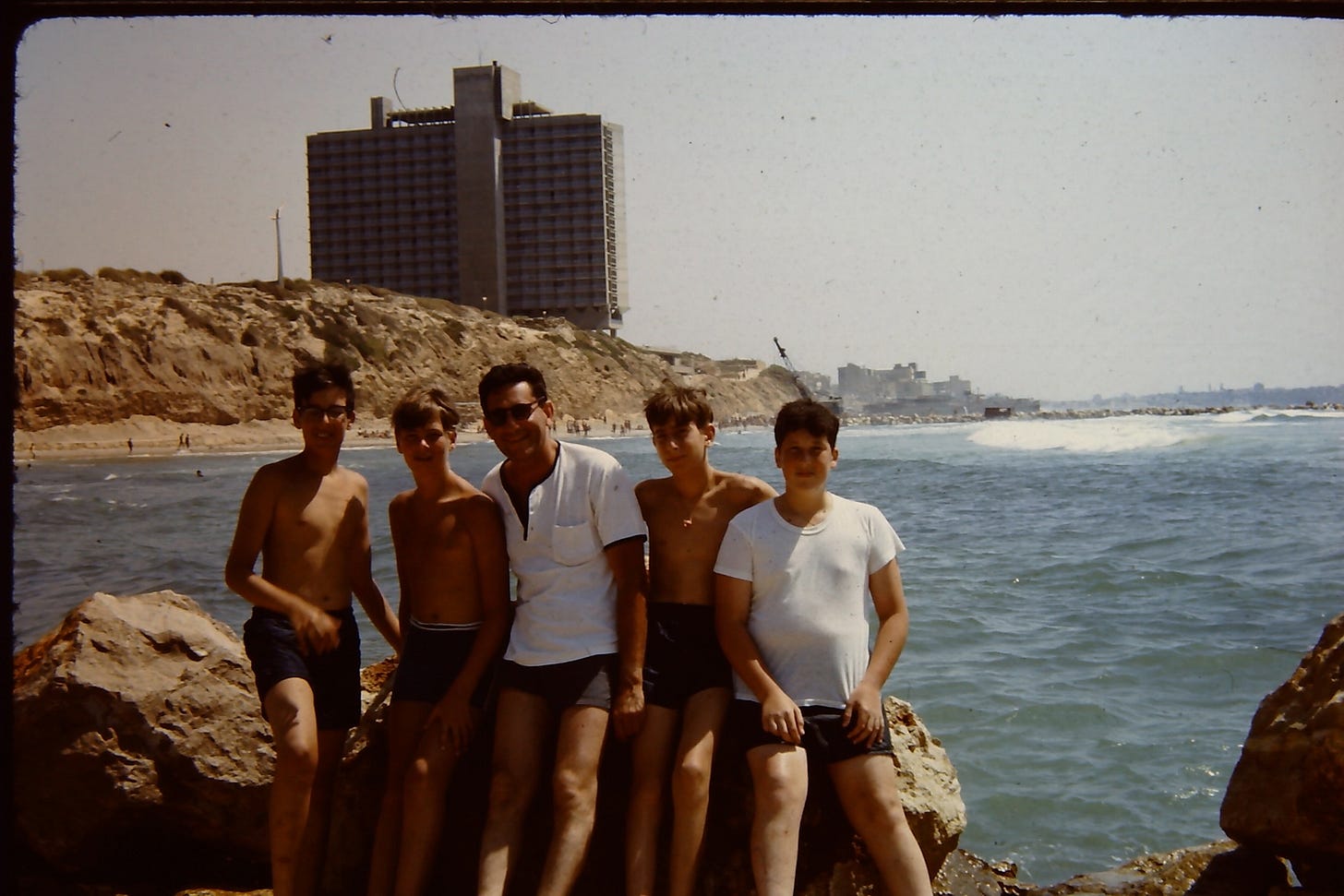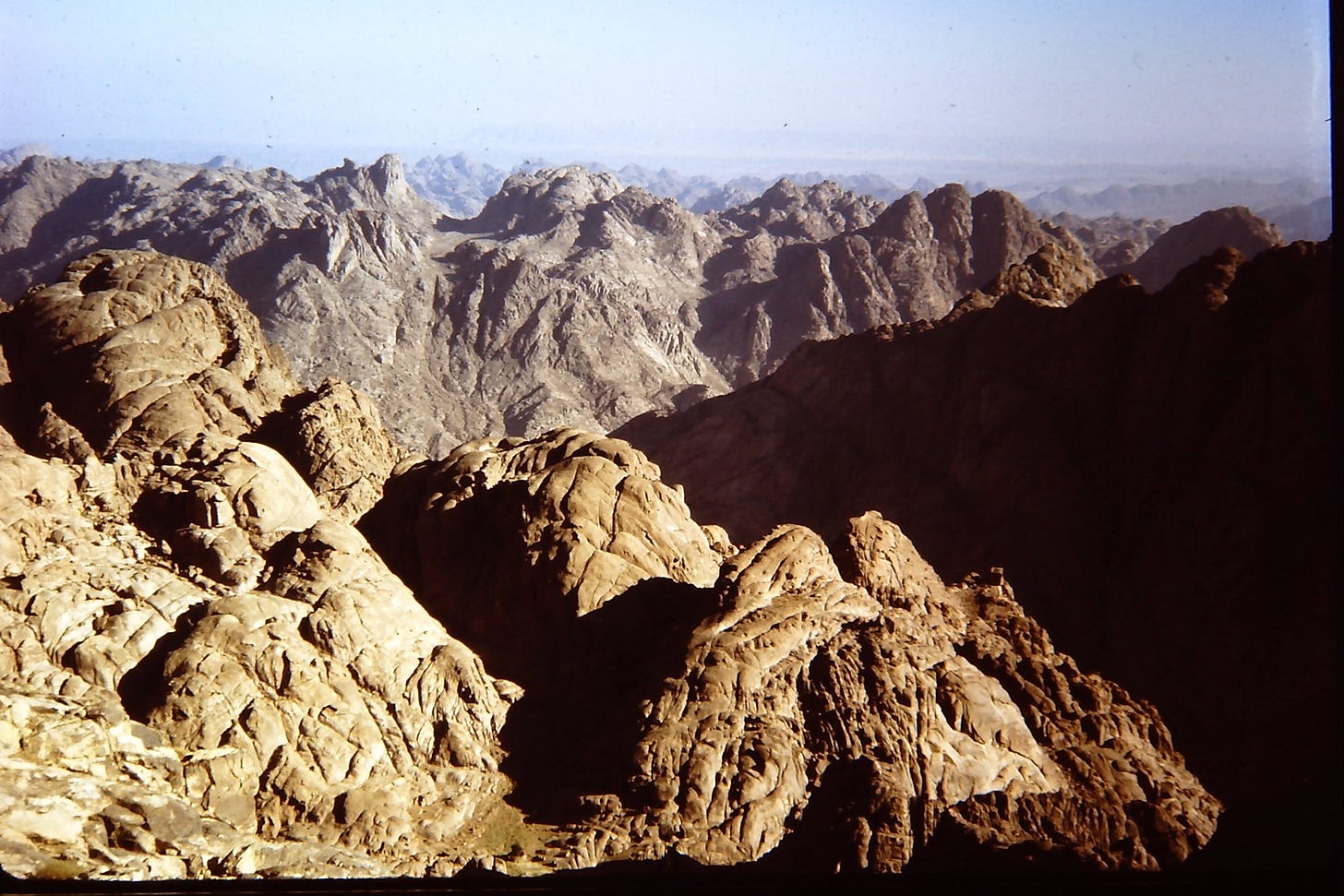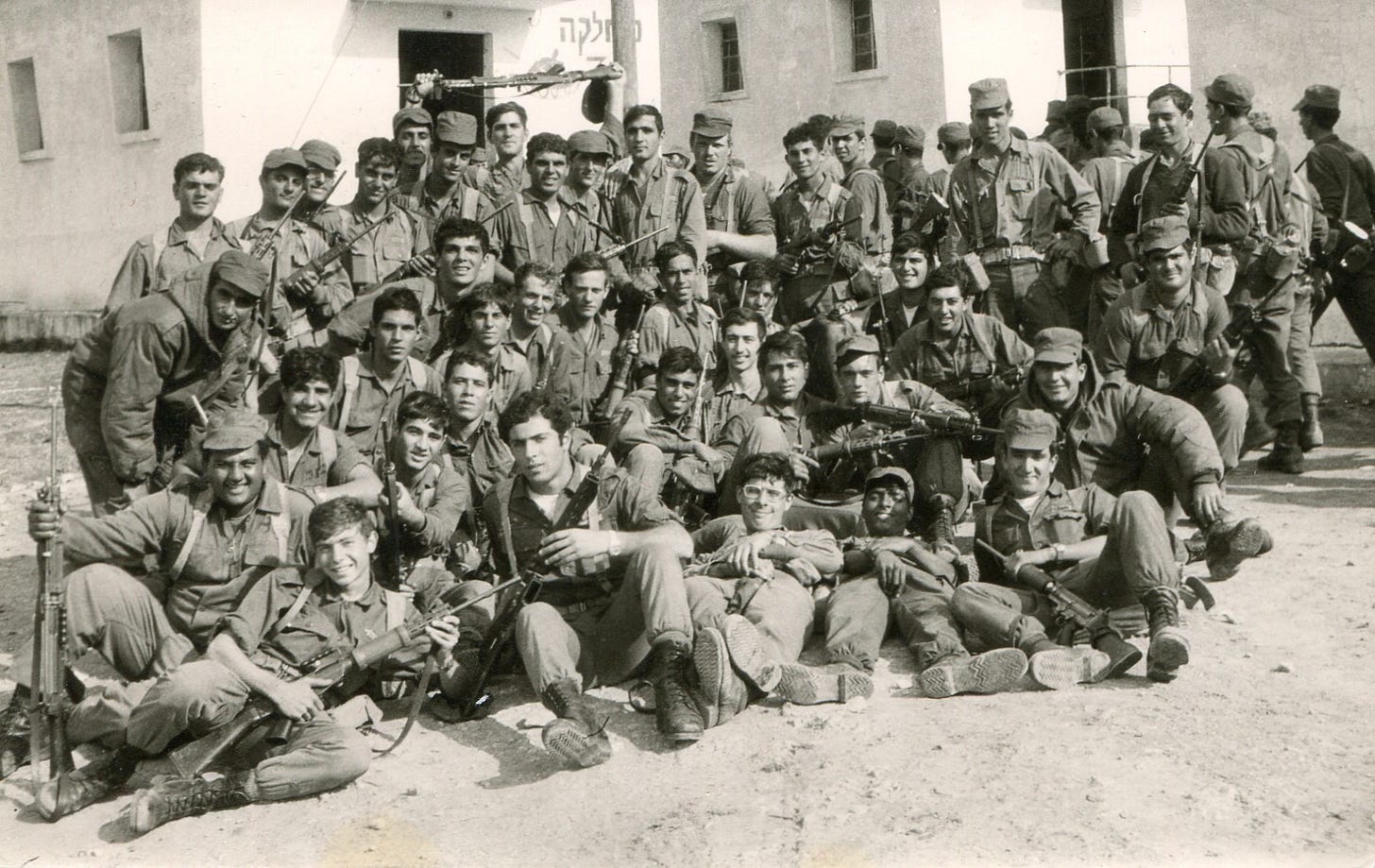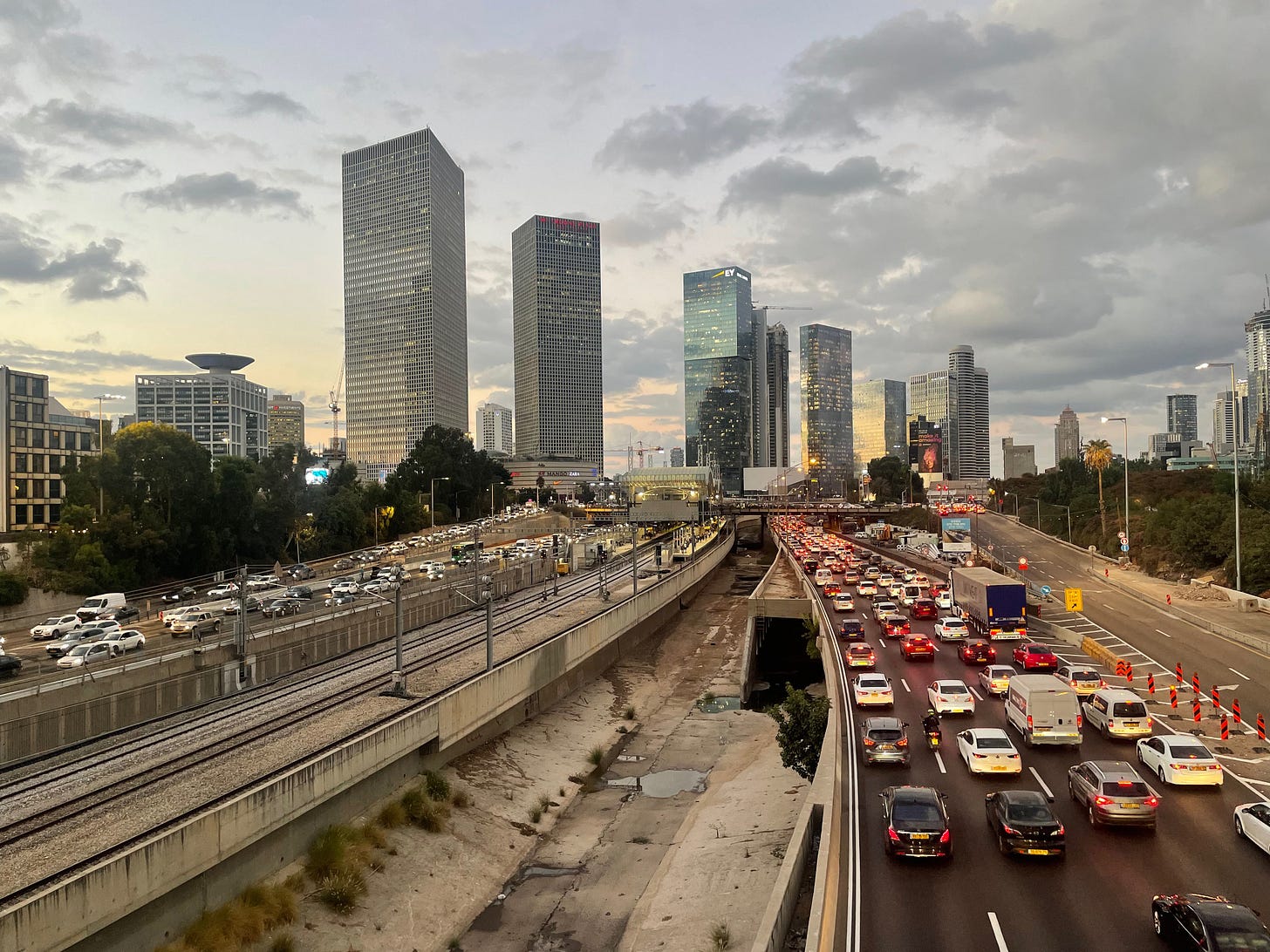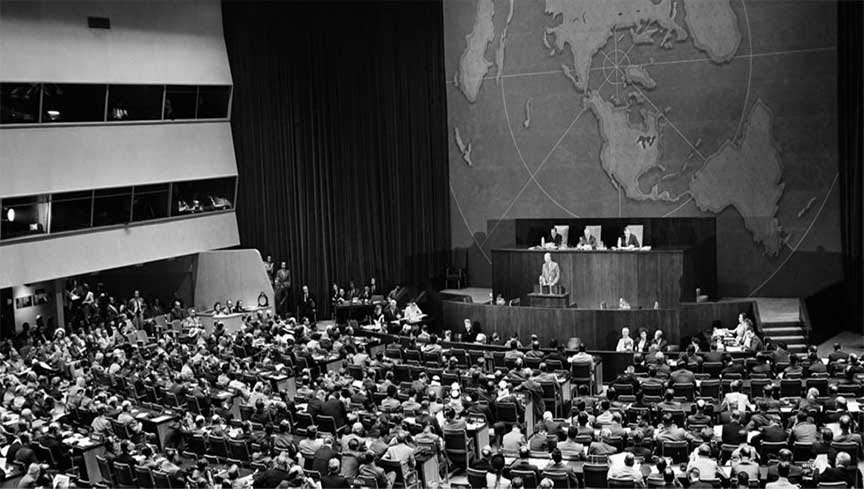Tel Aviv Diary April 28, 2023
My Complicated Love Affair with Israel, Terror Attacks, Judicial Reform, Economy and Reviews
DEFENSE
On Monday, a terrorist attack took place in the heart of Jerusalem, close to the Mahaneh Yehudah Market. The assailant used a car as a weapon, and among the injured was an 80-year-old man who had been shopping. Fortunately, no lives were lost. Throughout the week, there were several attempted attacks in the West Bank, but none were successful.
JUDICIAL REFORM
The future of the proposed Judicial “reform” remains uncertain. The opposition continues to organize rallies, with over a hundred thousand people gathering each week in Tel Aviv and tens of thousands more at other locations across the country. On the eve of Israel's Independence, rally organizers arranged alternative celebrations, which attracted tens of thousands of attendees.
On the other end of the political spectrum, a mass rally in support of the government’s proposed reforms took place in Jerusalem on Thursday night. Approximately 150,000 people attended the event, which aimed to pressure Prime Minister Netanyahu not to compromise on the reform, or underhandedly abandon the reform plan entirely.
On Sunday, Prime Minister Netanyahu cancelled his planned address to the General Assembly of Jewish Federations - a yearly conference that takes place in Israel every five years. This marks the first time in 15 years that Netanyahu has not either attended in person or sent a video message. While the official reason cited was a scheduling conflict, the actual reason appears to be the Prime Minister’s fear of facing protests both outside and inside the conference.
The Knesset session is set to resume next week, with the first order of business being the passage of a budget. The question remains: Will the issue of Judicial reform resurface? At this point, no predictions can be made.
ISRAEL AT 75: A LOVE STORY
As Israel marks its 75th anniversary, the celebrations are lively, yet different from previous years, due to the ongoing proposed judicial reform and the public's overwhelmingly negative response to them. As I've spent considerable time writing about the proposed reforms and related issues over the past few months, I'd like to take a moment to reflect on what 75 years of Israel means to me personally.
It feels like just yesterday that we celebrated Israel's 40th anniversary, when I was in charge of the Israel Day Parade and related festivities in New York. Back then, reaching 40 seemed like a monumental achievement for a still-young nation. Today, at 75, Israel has matured significantly, on the widest number of fronts. In my heart, Israel remains the country I learned about in elementary school: a small state with fewer than 3 million inhabitants, surrounded by adversaries and vulnerable to attack at any moment.
My first visit to Israel was with my parents in 1965. I vividly recall our walking tour in Jerusalem's Mamilla area, where we were spontaneously invited to attend a Bris in a nearby apartment. Our tour guide cautioned us not to point at the Jordanian soldier perched on the wall, just 50 feet away in the divided city.
I was old enough during the period leading up to the Six-Day War to understand the fear my parents and grandparents experienced regarding Israel's fate in the weeks prior to the war. My elementary school even rented a bus for the seventh and eighth graders to travel to Washington, D.C., to protest in support of Israel. By the protest's fifth day, it had turned into a celebration as the war unfolded in Israel's favor. The collective exhilaration we felt when it became clear that Israel was winning is unforgettable.
The following summer, in 1968, I traveled to Israel with many of my elementary school classmates.
Over the next five years, I visited Israel four times, working on a kibbutz, hiking through the Sinai Desert, and traveling from the north to the south and back again. By the summer of 1973, I led a teen tour group myself, continually falling deeper in love with this complex, yet beautiful land.
During the Yom Kippur War, I was a student at Columbia University, while working at the Jewish Agency. I helped organize a demonstration opposite the United Nations, which took place on the second day of the war. During the event, people spontaneously began passing money forward to support Israel. The following day, I was tasked with presenting the collected funds, contained in a massive duffel bag, at a luncheon for Israel's major donors. To my surprise, I spotted my parents in the audience, undoubtedly pledging more than they could afford.
I had initially wanted to go to Israel and volunteer immediately, but circumstances, along with wise advice from my parents and other mentors led me to finish college first. I made Aliyah in 1975 and enlisted in the Israel Defense Forces (IDF).
My college degree and my reputation as a well-known activist for Israel landed me a significant job as an officer in the Air Force. This position brought me into contact with some of Israel's senior Air Force personnel. At that time, Israel was still reeling from the Yom Kippur War, grappling with both direct losses and a loss of confidence.
As the Air Force focused on lessons to be learned from the war, it was the miraculous rescue mission at Entebbe that ultimately lifted the nation's somber mood. While I wasn't directly involved in the mission, my commander in the Air Force was the lead pilot, so a bit of the glory rubbed off on all of us under his command.
In 1976, Israel was still considered a developing country. It took months to get a phone line, there was only one TV station (which had just introduced color), and movies arrived in Israel months after their US release. One of the greatest joys was having someone bring you a copy of the New York Times to read.
Despite the problems and challenges, Israel felt like home. I was a classic secular Zionist, believing that Israel was the solution to the Jewish predicament. It was the place where Jews would never be helpless victims. These days, when I join the protest movement in Tel Aviv, I still get chills when we all sing Hatikvah together, and my mind drifts back 48 years to when I stood on a hill in the West Bank as a new recruit, singing Hatikvah during a ceremony with my gun in hand.
I have loved and embraced this country, fully aware of its imperfections. As a young recruit, I stood guard at Joseph's Tomb in Nablus while stones were hurled at me. A few years later, as a reservist, I spent a summer patrolling the Gaza Strip. That experience underscored how insidious an occupation can be. Now, over 40 years later, I have no idea how to end it, but I know we can never be a true democratic, Jewish state until we find a solution to that problem.
Israel faces numerous other challenges, but it is home – my home. The city I live in, Tel Aviv, has transformed over the past decade from a small financial capital to the center of Israel's high-tech revolution. When I first visited Israel, Tel Aviv had a single, modest skyscraper with 34 stories. Today, the city boasts dozens of skyscrapers, almost all constructed in the last decade. Its food and cultural scenes are incredible, movies are often released in Tel Aviv before Los Angeles —and although prices are high, there's almost nothing you can find in New York that you can't find in Tel Aviv.
Israel's industries are cutting-edge, and its military technology is unrivaled. All of this has been achieved in just 75 years, despite fighting wars, dealing with ongoing terrorism, and not having a single year without casualties from enemy actions.
The future is, of course, uncertain, but my participation in the largest protest movement in Israel's history over the past three months has renewed my confidence that brighter days lie ahead. Witnessing thousands of people, many of them young, come out and work towards ensuring a more promising future gives me faith that it will indeed happen. Regardless of the outcome, my love for this country remains unwavering, and I can only hope that by the time Israel reaches its centennial – an event that actuarial tables suggest I may not be around to witness – it will have overcome many of the challenges it faces at 75 years old.
ECONOMY
Volvo has invested $6 million in CorrActions, a company that has developed a product that can identify if a driver is either falling asleep, or is drunk.
Infinidome has completed a $9 million round of raising capital. Included in the investors are Honeywell US and South Korean Hanwha Aerospace.
Dropbox is closing its R&D center in Israel and laying off all of its workers.
HISTORY
On November 29, 1947, the UN General Assembly met to vote on the proposal to partition Palestine into a Jewish and an Arab state. All of Zionist foreign policy led to this one moment. Members of the Zionist delegation lobbied continually to ensure that the partition was passed. The members of the American Zionist movement were especially instrumental in influencing many wavering delegations to vote for the partition. The final results were as follows:
Voted in favor of Partition: Australia, Belgium, Bolivia, Brazil, Byelorussia (part of the Soviet Union) Canada, Costa Rica, Czechoslovakia, Denmark, Dominican Republic, Ecuador, France, Guatemala, Haiti, Iceland, Liberia, Luxembourg, the Netherlands, New Zealand, Nicaragua, Norway, Panama, Paraguay, Peru, the Philippines, Poland, Sweden, Ukraine, Union of South Africa, USSR, USA, Uruguay, and Venezuela.
Voted Against Partition: Afghanistan, Cuba, Egypt, Greece, India, Iran, Iraq, Lebanon, Pakistan, Saudi Arabia, Syria, Turkey, and Yemen
Abstained: Argentina, Chile, China, Colombia, El Salvador, Ethiopia, Honduras, Mexico, United Kingdom, and Great Britain.
After the vote, Abba Hillel Silver spoke on behalf of the Jewish Agency, saying, “The Jewish people will be forever grateful to the nations which contributed the decision; we're especially appreciative of the leadership provided by the United States and the Soviet Union, and are happy that, in solution of the Palestine problem, these two great powers worked harmoniously together.”
The Arabs rejected the vote, and a civil war broke out between Jews and Arabs in the aftermath. When the mandate ended a half year later, neighboring Arab armies invaded
.
THAT’S ENTERTAINMENT
MOVIE REVIEW — “FILLING THE VOID”
Another Hebrew film added to the Netflix lineup is "Filling the Void," a movie set within the ultra-Orthodox world. The story revolves around an 18-year-old girl who is about to get married, when her sister tragically dies during childbirth. The central conflict of the film focuses on whether the young girl should marry her sister's husband, ensuring that the baby remains part of the family.
Although the film's star, Hadas Yaron, delivers a compelling performance as the young protagonist, "Filling the Void" ultimately falls short in providing a deeper insight into the character's emotions and thoughts regarding her circumstances and the man she may marry. Consequently, viewers might not feel as invested in the story as they could have been. Despite the fascinating glimpse into the ultra-Orthodox world, some viewers may choose to pass on this movie, due to its lack of emotional depth and character development.
A TASTE OF TEL AVIV — SHAFOII
RESTAURANT REVIEW, by Tali Schulman
Last week we took a short break from the TLV wine bars, but today we’re back, and we are visiting “Shafoii”. Located in Kerem Hateimanim, just steps from Shuk Hacarmel, Shafoii is a fabulous addition to the neighborhood. As someone who lived in that neighborhood for a few years, I can honestly say it is currently going through an incredible transformation. There are unlimited, incredible, new places opening up and Shafoii is one to add to that list. Located at Simtat HaCarmel 23 (save that, they’re not on google maps!), Shafoii offers an ever changing menu of delicious small plates and incredible wine. Since their menu is ever-changing, I can’t recommend what you should eat, but you can trust their lovely staff to guide you in the right direction toward amazing food and wine. It’s a small, quaint but wonderful spot with a quiet and calming atmosphere perfect for a date, or to catchup with a good friend. They don’t take reservations, so catch them while they’re still pretty new and there isn’t a long wait to sit!
For more Tel Aviv restaurant recommendations, you can find me on Instagram @talischulman where I save all my food adventures in my highlights!




